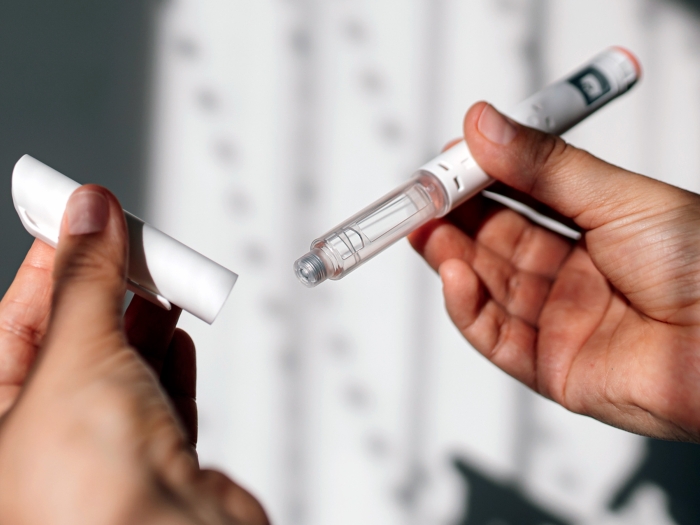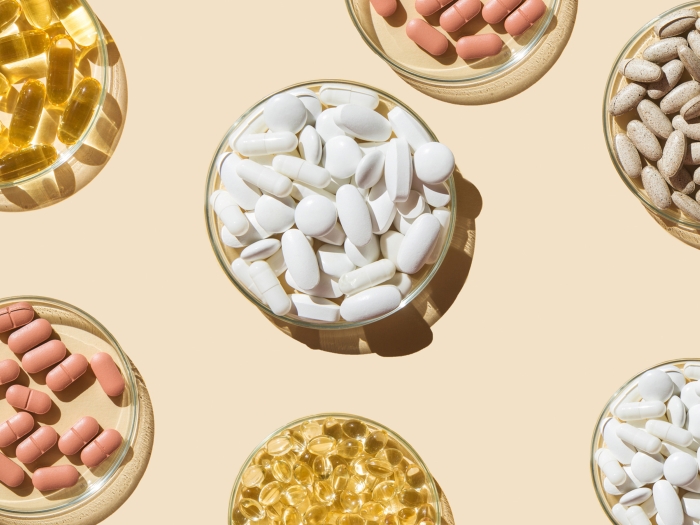
Professor of Internal Medicine and Program Director of Fellowship
Transplant Hepatology
[email protected]
Available to mentor
Robert John Fontana, MD

Professor
-
Fellow, GastroenterologyUniversity of Michigan, Ann Arbor, Michigan, 1995
-
Chief Medical ResidentSt. Joseph Hospital, Chicago, Illinois, 1992
-
Residency, Internal MedicineNorthwestern University, Chicago, Illinois, 1991
-
B.S. ChemistryWayne State University, Detroit, Michigan, 1984
-
Fettiplace A, Marcinak J, Merz M, Zhang H-T, Kikuchi L, Regev A, Palmer M, Rockey D, Fontana R, Hayashi PH, Tillmann HL, Di Bisceglie AM, Lewis JH. Aliment Pharmacol Ther, 2024 Nov; 60 (10): 1293 - 1307.Journal ArticleReview article: Recommendations for detection, assessment and management of suspected drug-induced liver injury during clinical trials in oncology patients.
DOI:10.1111/apt.18271 PMID: 39300766 -
Conlon C, Li Y-J, Ahmad J, Barnhart H, Fontana RJ, Ghabril M, Hayashi PH, Kleiner DE, Lee WM, Navarro V, Odin JA, Phillips EJ, Stolz A, Vuppalanchi R, Halegoua-DeMarzio D, Drug‐Induced Liver Injury Network (DILIN) . Aliment Pharmacol Ther, 2024 Sep; 60 (6): 787 - 795.Journal ArticleClinical characteristics and HLA associations of azithromycin-induced liver injury.
DOI:10.1111/apt.18160 PMID: 38988034 -
Fontana RJ, Li Y-J, Chen V, Kleiner D, Stolz A, Odin J, Vuppalanchi R, Gu J, Dara L, Barnhart H, Drug-Induced Liver Injury Network . Hepatol Commun, 2024 Sep 1; 8 (9):Journal ArticleGenetic variants associated with immune-mediated liver injury from checkpoint inhibitors.
DOI:10.1097/HC9.0000000000000518 PMID: 39185906 -
Fontana RJ, Li YJ, Vuppalanchi R, Kleiner DE, Gu J, Shroff H, Van Wagner LB, Watkins PB, US DILIN study group . Am J Gastroenterol, 2024 Aug 1; 119 (8): 1496 - 1505.Journal ArticleERAP-1 and ERAP-2 Variants in Liver Injury After COVID-19 mRNA Vaccination: A US Multicenter Study.
DOI:10.14309/ajg.0000000000002702 PMID: 38314748 -
Swanson LA, Hawa F, Fontana RJ. Clin Liver Dis (Hoboken), 2024 23 (1): e0191Journal ArticleImmune-mediated liver injury from checkpoint inhibitors: Best practices in 2024.
DOI:10.1097/CLD.0000000000000191 PMID: 38841193 -
Bonkovsky HL, Ghabril M, Nicoletti P, Dellinger A, Fontana RJ, Barnhart H, Gu J, Daly AK, Aithal GP, Phillips EJ, Kleiner DE, US DILIN Investigators . Liver Int, 2024 Jun; 44 (6): 1409 - 1421.Journal ArticleDrug-induced liver injury (DILI) ascribed to non-steroidal anti-inflammatory drugs (NSAIDs) in the USA-Update with genetic correlations.
DOI:10.1111/liv.15892 PMID: 38451034 -
Likhitsup A, Fontana RJ. Curr Opin Gastroenterol, 2024 May 1; 40 (3): 164 - 171.Journal ArticleDiagnosis and management of immune mediated liver injury from checkpoint inhibitors.
DOI:10.1097/MOG.0000000000001015 PMID: 38375823 -
Shenoy A, Fontana RJ. Hepatology, 2024 May 1; 79 (5): 979 - 982.Journal ArticleHDV screening in chronic HBV: An unmet need of growing importance.
DOI:10.1097/HEP.0000000000000722 PMID: 38088906

Department News
Join us for the 27th Annual Liver Disease Wrap-Up conference taking place on Saturday, December 7, 2024

Health Lab
Glucagon-like peptide-1, or GLP-1, receptor agonists, that aid in weight loss, are now being investigated for their ability to help other patients, including those with liver disease. However, a research letter discusses the first known case of hepatitis and jaundice in a patient taking these drugs.

Health Lab
Millions of Americans consume supplements that contain potentially hepatoxic botanical ingredients, according to a study from University of Michigan researchers.